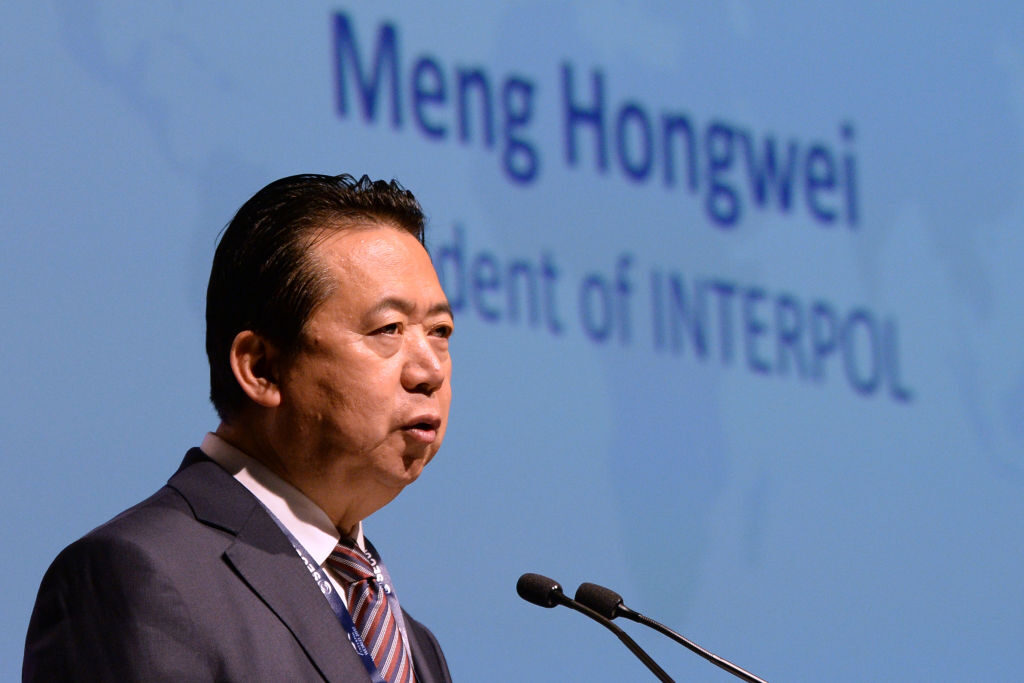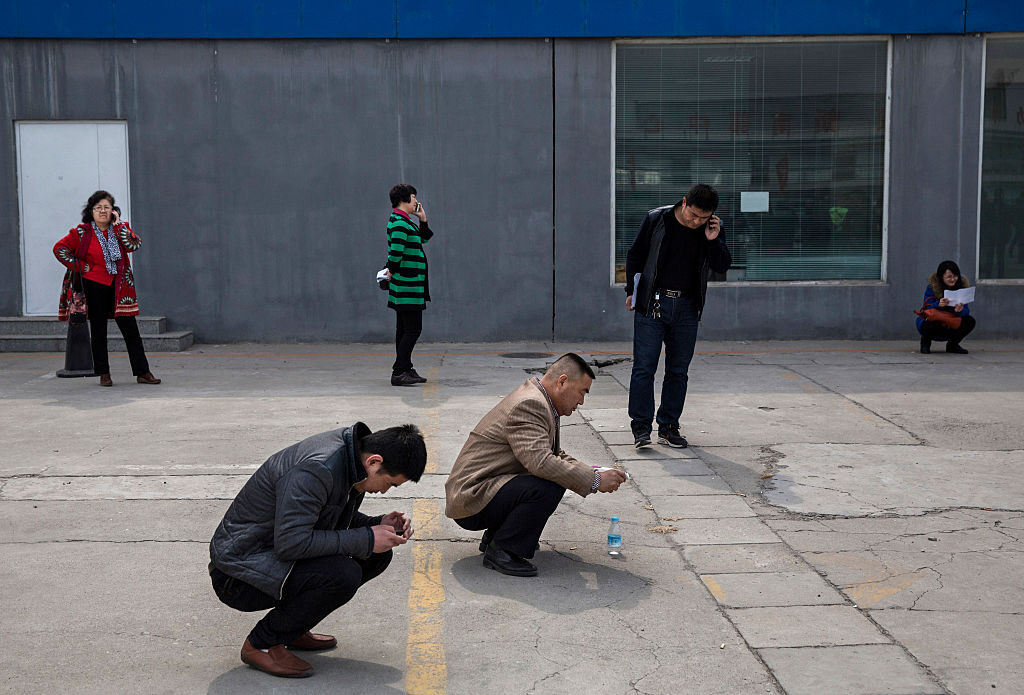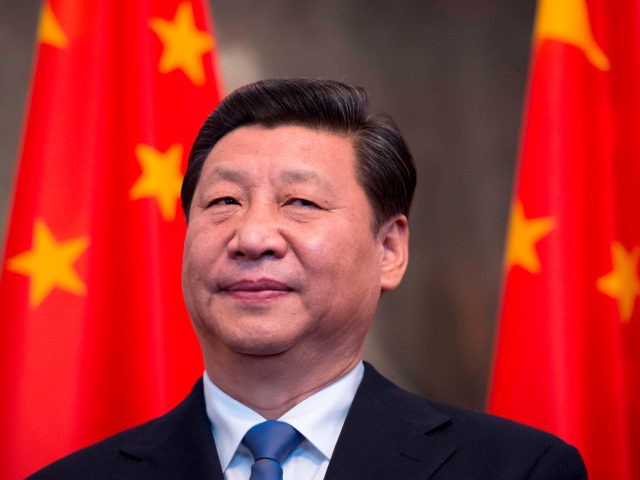Chinese dictator Xi Jinping ordered the Communist Party’s discipline agency to engage in a more intense campaign against the “cancer” of corruption, the state news outlet Xinhua reported on Wednesday, calling the situation within the Party “grave and complex.”
Xi made his remarks on Monday at the opening of a meeting of the Central Commission of Discipline Inspection (CCDI), a body that Xi revitalized following his ascent to power in 2014 and has used to purge thousands of Communist Party officials at all levels of authority for the past decade. Xi announced a “mass line” campaign in 2014 – reviving a Mao Zedong-era term for the purge of government workers and officials deemed insufficiently loyal to the communist cause or otherwise corrupt.
The CCDI’s mandate is to identify and punish officials accused of abusing their power, engaging in corruption, or failing to uphold “family virtues.” It is one of China’s most secretive and feared bureaucratic bodies.
Xi suggested that he would expand the mandate of the CCDI even further this week, as corruption was a “cancer threatening the vitality and ability” of the Chinese Communist Party, the largest organization of its kind in the world.
Xi has both empowered the commission and attempted to brand it as a beloved institution. The Chinese government aired a state-run propaganda “documentary” on Sunday narrating the alleged successes of Xi’s corruption purges, featuring imprisoned former officials offering effusive apologies to the camera.
The Communist Party parades some of those pursued by the CCDI – such as Li Tie, the national soccer coach forced to “publicly repent” in the documentary – on camera and in its media arms, prominently declaring their imprisonment and condemnation a success. In other cases, officials have simply disappeared without explanation – and without confirmation that CCDI work was, in fact, responsible for their vanishing.
Xi lost two of his highest-profile officials abruptly in this way in 2023: former Foreign Minister Qin Gang and former Defense Minister Li Shangfu. Both abruptly canceled all future engagements for weeks before Chinese government media outlets announced that Xi had removed them from their posts without explanation. Chinese social media sites, which the regime heavily regulates, allowed rumors to circulate of personal improprieties or potential corruption, but the regime never directly accused either official of improprieties. Qin disappeared in June and Li in August; the whereabouts of both remain unknown at press time.

File/This photo taken on July 4, 2017 shows Meng Hongwei, president of Interpol, delivering an addresses at the opening of the Interpol World Congress in Singapore. The former Chinese head of Interpol, who went missing last month, was accused of accepting bribes on October 8, becoming the latest top official to fall in President Xi Jinping’s anti-corruption dragnet. (ROSLAN RAHMAN/AFP via Getty Images)
Chinese state media coverage of Xi’s appearance at the CCDI meeting did not mention Li or Qin, nor has the Chinese government ever suggested that the agency targeted either of the former officials.
Xi’s assessment that corruption in his Party remains a “grave and complex” threat on Monday contradicted his declaration that he had led the CCDI to “an overwhelming victory … in the fight against corruption” in the same speech. Xinhua reported that Xi claimed that “discipline” purges had “helped remove serious hidden dangers in the Party, the country, and the military, and ensured that the power granted by the Party and the people is always exercised in the interests of the people.”
“To address both the symptoms and root causes of corruption, we will advance national anti-corruption legislation and promote a culture of integrity in the new era,” Xi told the commission, according to Wednesday’s Xinhua report.
“There is no possibility of stopping, slackening or compromising the anti-corruption campaign,” Xi reportedly emphasized.
Xinhua listed examples of the behavior Xi intended to fight as “increasingly grave dangers such as a lack of motivation, incompetence, being out of touch with the people, corruption and other misconduct.” It described corruption as the “most significant threat” but one of several.
It also reported that Xi emphasized not just financial corruption, but the “deterioration of family virtues.”

File/Chinese buyers wait to bid at an auction of government vehicles on March 18, 2015 in Beijing, China. The auction was held to sell-off more than 100 high-end vehicles that were in use by public officials. Chinese President Xi Jinping, the leader of China’s Communist Party, has made cracking down on corruption and official displays of excess a priority under his leadership. (Kevin Frayer/Getty Images)
“The deterioration of family virtues often becomes a significant factor leading to serious disciplinary and legal violations among officials,” Xi was quoted as saying.
Chinese social media censors allowed “family virtues” rumors to circulate about Qin Gang in the immediate aftermath of his disappearance. Users of the regime-controlled microblogging site Weibo accused Qin of engaging in an extramarital affair with a journalist, PhoenixTV’s Fu Xiaotian, and accused him of fathering an infant she had posted photos of on her social media accounts without explanation – Fu did not have a publicly known romantic partner at the time she published photos of her son.
Fu also abruptly vanished from the public eye and has not posted on her social media accounts since April. A video of her televised interview with Qin was also removed from PhoenixTV’s Youtube channel.
According to Xinhua, presumably not counting Qin and Li, the CCDI processed 470,000 anti-corruption cases in the first nine months of 2023.
“Among them, 65,000 were township- and section-level officials, 46,000 incumbent or former Party chiefs of villages or heads of villagers’ committees,” the state-run Global Times newspaper reported. “Of the 405,000 individuals who were punished for misconduct, 54,000 were township- and section-level officials.”

COMMENTS
Please let us know if you're having issues with commenting.